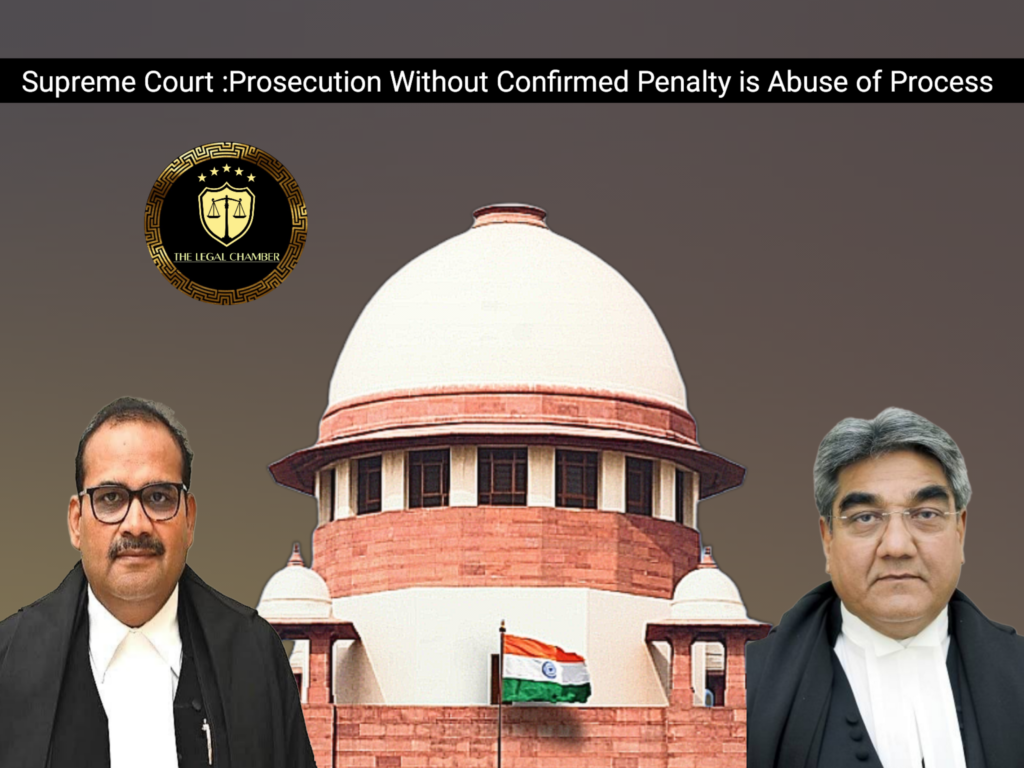
Facts Of The Case:
A search u/s 132 of the Income Tax Act, 1961, was conducted at the appellant’s residence on 24.04.2016, leading to the seizure of unaccounted cash. Based on this, the Revenue initiated prosecution u/s 276C(1) for the Assessment Year 2017-2018, alleging a wilful attempt to evade tax. The appellant’s petition before the High Court to quash these proceedings was dismissed. Subsequently, the appellant filed an application before the Income Tax Settlement Commission, which, in its order dated 26.11.2019, granted him immunity from the levy of penalty after noting his full co-operation and disclosure. However, the Commission refrained from granting immunity from prosecution due to the pendency of the quashing petition before the High Court. The core legal dispute before the Supreme Court was whether the criminal prosecution could continue after the Settlement Commission’s conclusive order, particularly when the Revenue had initiated the prosecution in defiance of its own binding circulars that required a confirmed penalty by the ITAT as a prerequisite.
Procedural History:
The procedural history began with the Revenue filing a complaint against the appellant for an offence under Section 276C(1) of the Income Tax Act before the Additional Chief Metropolitan Magistrate, Egmore, Chennai. The appellant then invoked the inherent jurisdiction of the Madras High Court under Section 482 of the CrPC, filing a petition to quash these criminal proceedings. The High Court, vide its impugned judgment, dismissed this quashing petition. Subsequently, the appellant filed a settlement application before the Income Tax Settlement Commission, which granted immunity from penalty but withheld immunity from prosecution due to the pendency of the quashing petition before the High Court. Challenging the High Court’s dismissal, the appellant then approached the Supreme Court, which granted leave and ultimately set aside the High Court’s order, quashing the prosecution.
READ ALSO :Landmark Ruling: Supreme Court Bars Prosecution of Company Directors Without Suing the Company First
Court Observation:
The Supreme Court observed that the continuation of prosecution under Section 276C(1) of the Income Tax Act after the Settlement Commission’s conclusive order was an abuse of the court’s process. It held that the Revenue authorities acted in blatant disregard of their own binding circulars, which mandated that prosecution for such offences should be launched only after the confirmation of concealment penalty by the Income Tax Appellate Tribunal (ITAT). The Court emphasized that the Settlement Commission’s order, which granted immunity from penalty after finding full disclosure and no suppression of facts by the appellant, was conclusive under Section 245-I of the Act. The Revenue’s act of pursuing prosecution despite this and in violation of its internal directives was deemed unfair, unreasonable, and unlawful.
Final Decision & Judgement:
The Supreme Court allowed the appeals and set aside the impugned judgment of the High Court. It directed that the prosecution lodged by the Revenue against the appellant under Section 276C(1) of the Income Tax Act, 1961, shall stand quashed. The Court held that continuing the prosecution after the Settlement Commission’s conclusive order, and in light of the Revenue’s blatant disregard for its own binding circulars, constituted a gross abuse of the process of law. Consequently, the Court also imposed costs of ₹2,00,000 on the Revenue, payable to the appellant.
Case Details:
Case Title: Vijay Krishnaswami @ Krishnaswami Vijayakumar vs. The Deputy Director of Income Tax (Investigation) Citation: 2025 INSC 1048 Criminal Appeal No.: (Arising out of SLP (Crl.) Nos. 3618-3620 of 2024) Date of Judgement: August 28, 2025 Judges/Justice Name: Justice J.K. Maheshwari and Justice Vijay Bishnoi
Download The Judgement Here